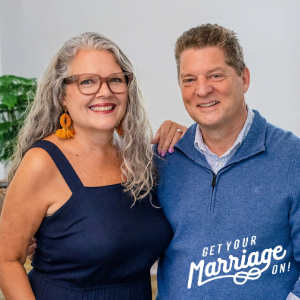Many of us have heard the phrase “duty sex.” For some of us, it may be a regular occurrence in our marriages. Although it seems harmless to have sex with your spouse when you don’t want to, it can actually do damage to your sexual desire and safety. On our podcast this week, we talked with Dr. Cami Hurst about her new research into women who have duty sex and the effect it has on them. In this post, we talk about how to recognize this phenomena and how to move on from having duty sex.
Note: Most of the research on duty sex focuses on women and it is mostly women who are affected. Therefore, in this article we will talk about wives as the spouse who is performing duty sex. However, this phenomena can definitely happen to men. If you are struggling as a husband, you can also apply the principles here. Please reach out to us if you have questions or concerns!
What is Duty Sex?

Duty sex describes sex that you consent to, but don’t want or enjoy. This doesn’t include cases where something is medically wrong, or in cases where there is abuse or sexual trauma. Duty sex is not the same thing as having a trauma response or being in an abusive relationship; Duty sex is agreeing to sex for a reason other than wanting it and not experiencing pleasure during or after the experience.
Unpacking Duty Sex
There’s a lot to unpack in that definition. The first thing to untangle are the ideas of wanting and consenting to sex. Consenting to sex means that you agree and are participating willingly. But wanting requires desire and an anticipation of pleasure. Consenting to sex does not always mean you want it. When these two don’t overlap, that’s duty sex.
It’s important to point out, though, that duty sex is not the same as having a responsive desire. People who have responsive desires usually require some initiation from their spouse before they start wanting sex. They may find themselves initially consenting to sex when they’re “not in the mood,” but they have an underlying desire for sex, they know that they generally respond favorably after a partner initiates, and can have a very pleasurable experience during and after the encounter.
Those who have duty sex, however, do not find pleasure during the experience or after. This can happen to spouses every once in a while, even if one generally enjoys sex. This sporadic “duty sex” is not the situation that Dr Hurst talks about. In her research, which we will cover more in this article, she studied women who feel like 70% or more of their sexual experiences are performed out of duty. The negative effects she found in her research apply to this category of women. However, any time we have sex out of duty we are potentially hurting our own sexuality and the intimate trust we have with our spouse.
Coercion
Although duty sex is performed consensually, that doesn’t mean that there isn’t coercion. Coercion happens when a spouse says no to sex, and their spouse tries to verbally or emotionally manipulate them into having sex anyway. This can look like a spouse who asks over and over again, or who frames it as a transaction (“ I did the dishes so you would have sex with me!”), or framing it as their spouse’s duty to satisfy their urges.
Duty sex can occur without coercion, but the presence of coercion makes the negative effects of duty sex worse. Coercion has no place in a healthy bedroom.

Why do We do It?
If there is no pleasure in sex (and no forced or abusive behavior), why are these wives having sex? We unfortunately live in a society where women are socialized to believe that sex is for men. Wives feel an obligation to have sex with their husbands, or may do it as a “favor” in hopes to get him to help her in other ways. Here are the top reasons women have duty sex, according to Dr Hurst’s study.
Top 5 reasons women have duty sex
- She feels it is necessary to satisfy his needs. Many women believe that it is their job to satisfy their husbands’ need for sex. The idea seems to be that men NEED sex and that it is their wives responsibility to provide it so their husband doesn’t turn to other sources.
- She doesn’t want to hurt his feelings. A wife doesn’t want her husband to be sad, and so she may sacrifice her own comfort and pleasure to avoid disappointing him.
- She wants to avoid tension in the relationship. Especially when coercion is involved, it can be emotionally exhausting to deal with tension in the relationship. Some women feel like it’s easier to just have sex than to fight or deal with emotional dissonance.
- She doesn’t want him to feel rejected. Again, the woman may feel like it is her responsibility to caretake her husband and protect him from these negative feelings. Or, she may simply feel like she can’t handle his reaction to feeling rejected.
- She feels guilty saying no. Sadly, many women feel guilty when they feel they aren’t able to meet their husband’s desire, so they say yes anyways.
How Does it Affect You?
Is having duty sex really that big a deal? For 30% of the women Dr Hurst studied, there were no negative effects yet. However, for a majority of women studied duty sex was detrimental to their sex drive and trust in the relationship. That 70% experienced negative effects emotionally, psychologically, and sexually.
Outcomes
Emotional: During and after sex these women reported feeling upset, irritable, distressed and/or guilty. These emotions worked to condition these women to expect bad feelings with sex and caused a desire crisis where many of them stopped believing they wanted sex or were sexual beings.
Psychological: Dr Hurst tested these women for symptoms of PTSD. Even though they had never experienced big trauma or abuse, these women had symptoms like avoiding thinking about anything to do with the experience of sex, feeling upset when something reminded them of sex, and having irritable and angry outbursts. Many of the participants showed mild PTSD symptoms, and some had symptoms that were moderately-severe.
Sexual: Of the women studied 44% lacked physical affection outside the bedroom, 43% had a sense of sexual predictability, 40% had stopped initiating all together, and 38% experienced sexual hopelessness. Many felt sexual anxiety, avoidance, and aversion.
These symptoms don’t come up after having duty sex once, but can creep up on you as it becomes a habit to have sex without desire. It’s heartbreaking to hear these findings, as well as the stories Dr. Hurst shared about these women. Surely there must be a better way.

What can We Do?
We need to move on from having duty sex in our marriages. In many ways, our narrative about sex needs to change. In this area, self sacrifice is not always noble and could end up damaging the relationship. The attitudes of using sex in a transactional way or to manage your spouse’s emotions and actions are not helpful.
Both spouses need to manage their own fears around what will happen if they don’t have sex. Both spouses need to prioritize social safety in the relationship; each spouse needs to know what they think and feel matters and their spouse will listen without getting angry or acting out.

For Couples Just Starting Out
For couples who are still developing their habits, it is so important that both parties understand consent. Root our coercion before it has a chance to affect the marriage. For the women in the study, they learned in the first few years of marriage that when they were honest about their desire there were consequences (a pouty or angry spouse, a fight, or coercion). Both spouses need the option to say no consequence free. Seek to understand the principle of mutual pleasure and how sex is better for both parties when both are enjoying it!
For Couples Stuck in a Bad Pattern
If you recognize yourself or your spouse in these symptoms, know you can move on from duty sex! You may need to consider finding a therapist or coach who can help you learn coercion-free desire discrepancy tools (we’ll give an example of one at the end). Establish sexual safety, get help to heal the trauma, address the resentment that has built, and only after all this focus on desire. She needs to learn in her body that she has sexual safety and access to coercion-free consent.
For Higher Desire Partners
You are not a bad person for wanting to have sex with your spouse, and you are not bad for feeling sad when they don’t want to have sex with you. However, we do need to learn how to create room for our spouses to feel safe saying no. Here are a few tips to help you create sexual safety in your marriage.
– Understand consent and sexual autonomy. Reading this post is a good place to start!
– Learn about connection. There are so many ways to connect and build intimacy that aren’t sex!
– Notice and talk to your spouse about ways they are comfortable connecting.
– Examine what need sex is fulfilling for you. Is sex tied to your self worth? Do you feel like you need sex to soothe your anxieties?
– Learn to be centered in your own self. Your worth is not created by your spouse’s reaction, and you are responsible to take care of your own emotions.
– Work with your spouse to learn each partners’ sexual brakes and accelerators. Find things you can do to help your spouse want sex, and learn what turns them away.
For more information on how to handle the anxiety of being a higher desire spouse, check out our podcast episode on the topic!
For Everyone!

For any couple, it’s so important to talk about consent. For parents, educate your kids about what consent really means. Also remember that a big chunk of women don’t have duty sex often, or if they don’t don’t experience these symptoms. As you read this post, think 1) “Do I do this?” and 2) “Do I have these symptoms, or do I see signs of them developing?”
The foundation of moving on from duty sex is…
- Sex is consensual, and not coerced.
- Sex needs to be wanted by both parties.
- She can’t be scared of what might happen if she doesn’t have sex.
- Both spouses welcome honesty, free from consequences.
Example of coercion-free desire discrepancy tool
First, find a definition of sex that is non preformative and not focused on physical outcomes (orgasm or ejaculation). Marty Klein defines sex as physical pleasure and connection, which works really well for our purposes here. One partner can request physical pleasure and connection. (It’s okay if this is awkward at first because something needs to change). The initiator can ask, “When would be a good time to connect?” and “What would be pleasurable and connecting for you?” It is the receiver’s job to throw out three ideas that sound enjoyable/ something they want. These could be laying together naked without touching. It could be a pillow fight. It could be cuddling while watching a movie. The initiator chooses the option that sounds the best.
If none of the options presented to the initiator sound good, they may have work to do in themselves about what they are actually seeking. If they desire closeness and connection, the research shows the best way to that end is patience and moving at a speed their spouse is willing to match. The idea is to teach the lower desire partner that what they have to give is enough and enjoyable.
Note: We Don’t Want to Beat Up Men!
This blog post is not meant to villainize husbands or higher desire spouses. Dr. Hurst said of her research that it proves people can experience trauma without a perpetrator. We aren’t here to beat up men, but to educate everyone on the opportunities we are missing and how our sex lives can be more connecting and more pleasurable. This is an invitation to husbands/higher desire spouses to address their sexual entitlement and work towards mutually pleasurable experiences.
Written by Amanda Severson with Get Your Marriage On!






